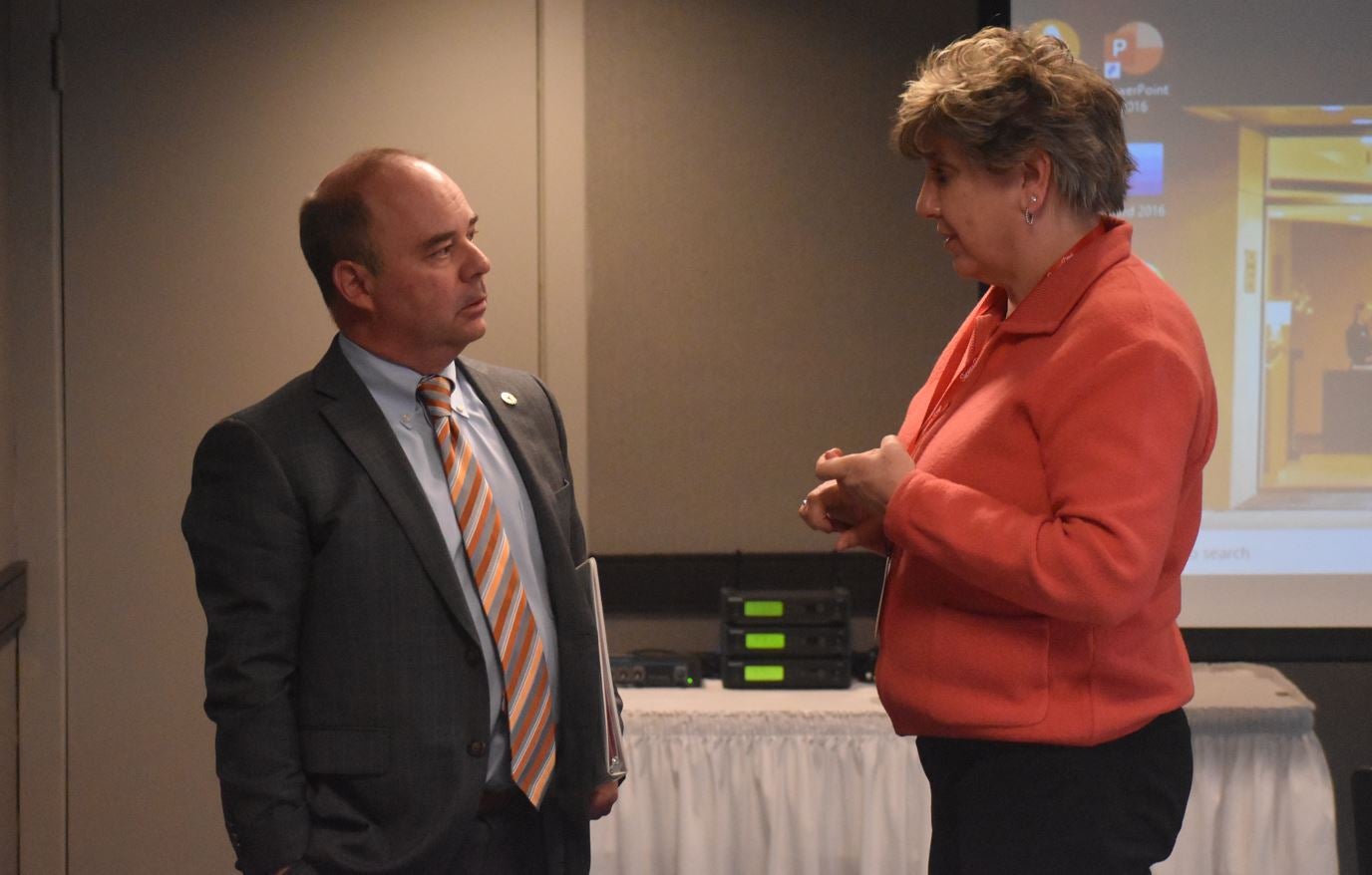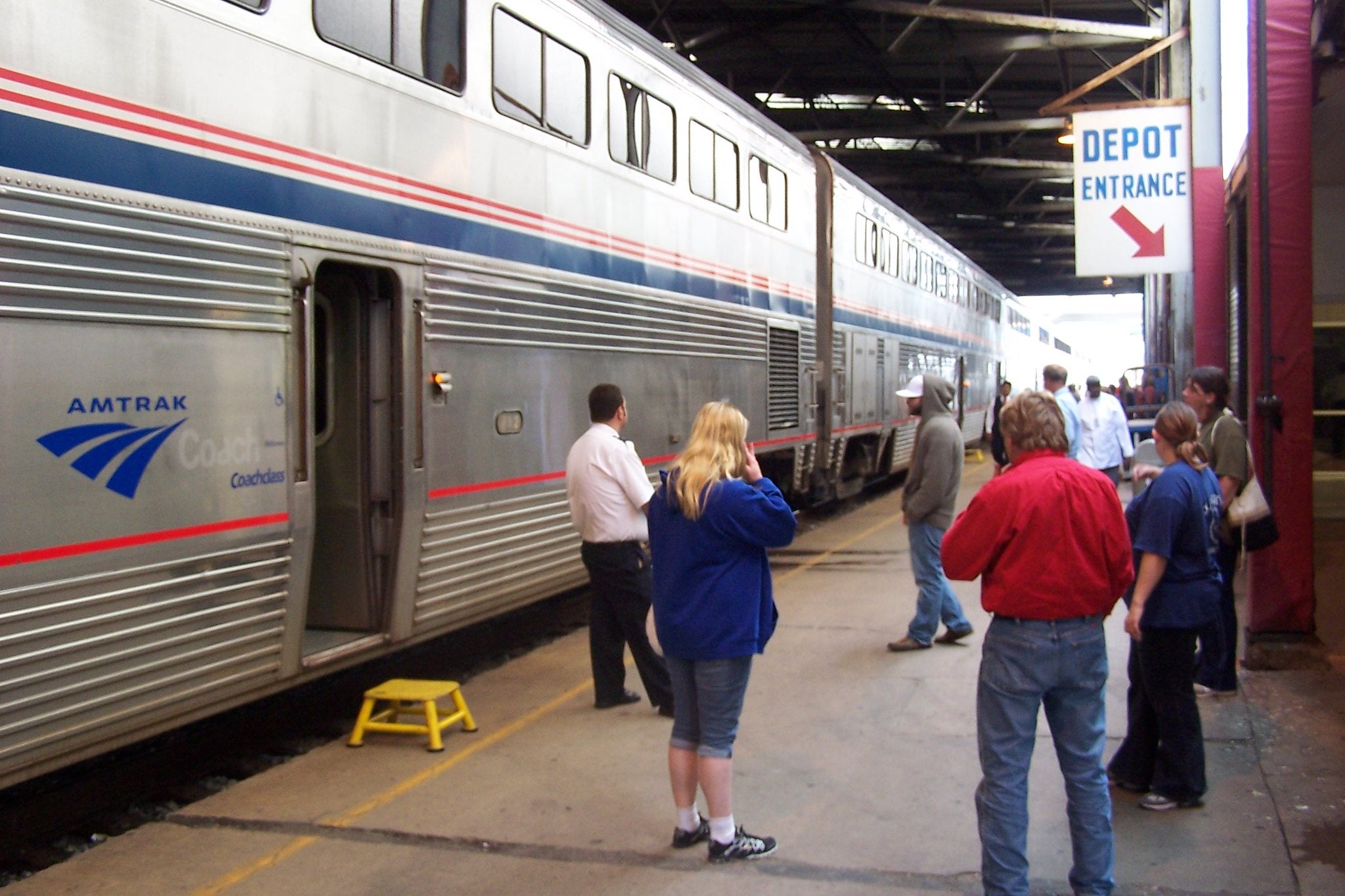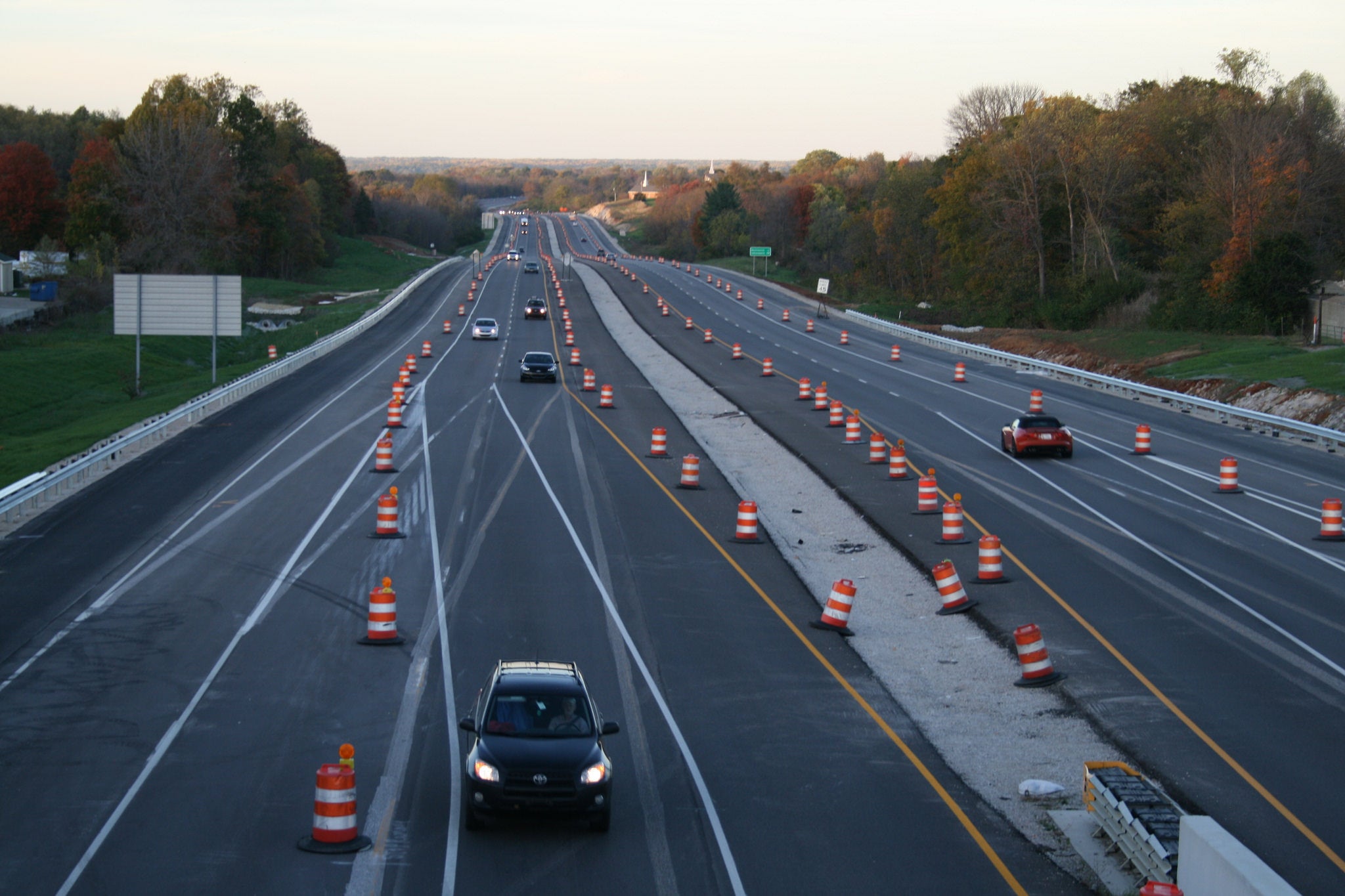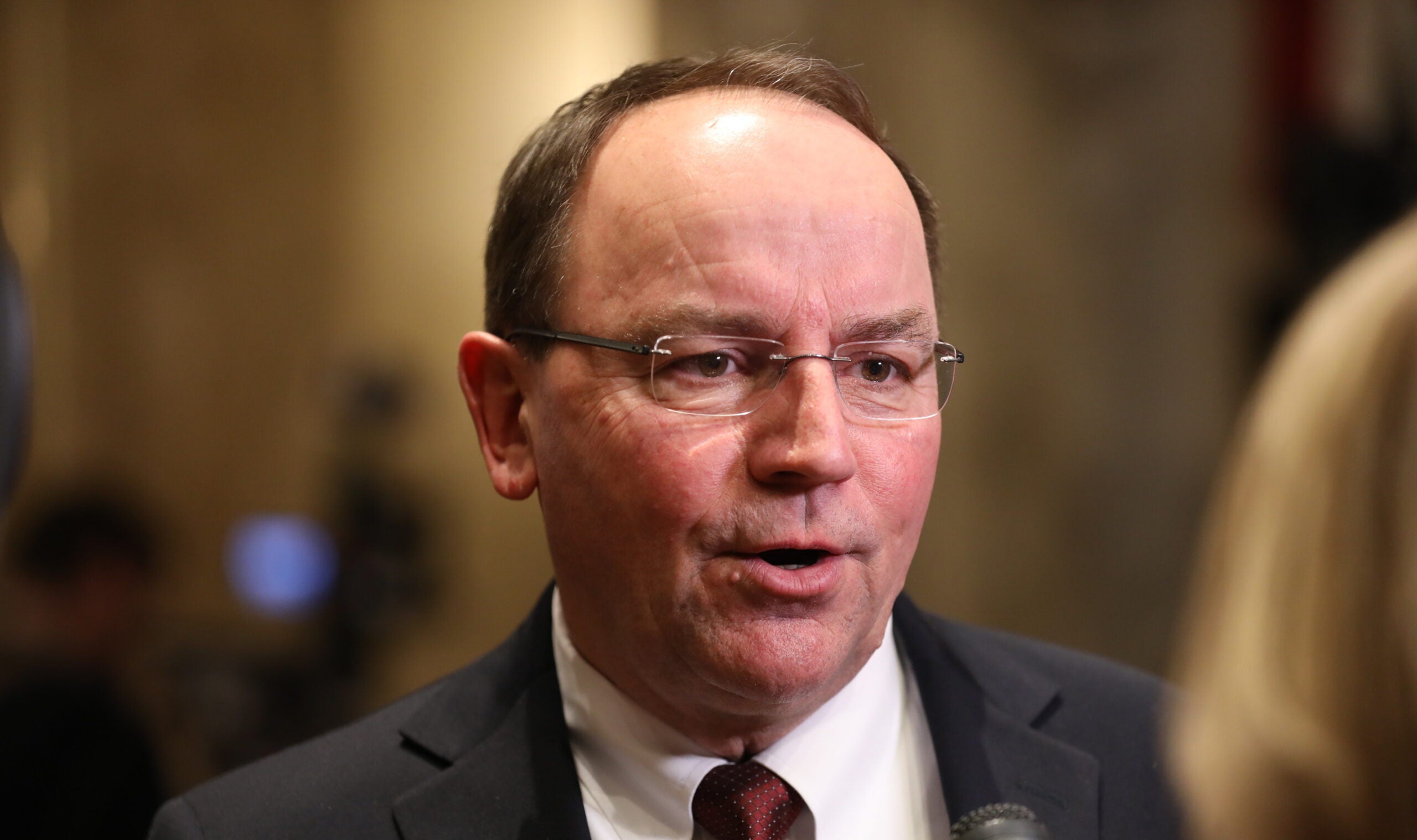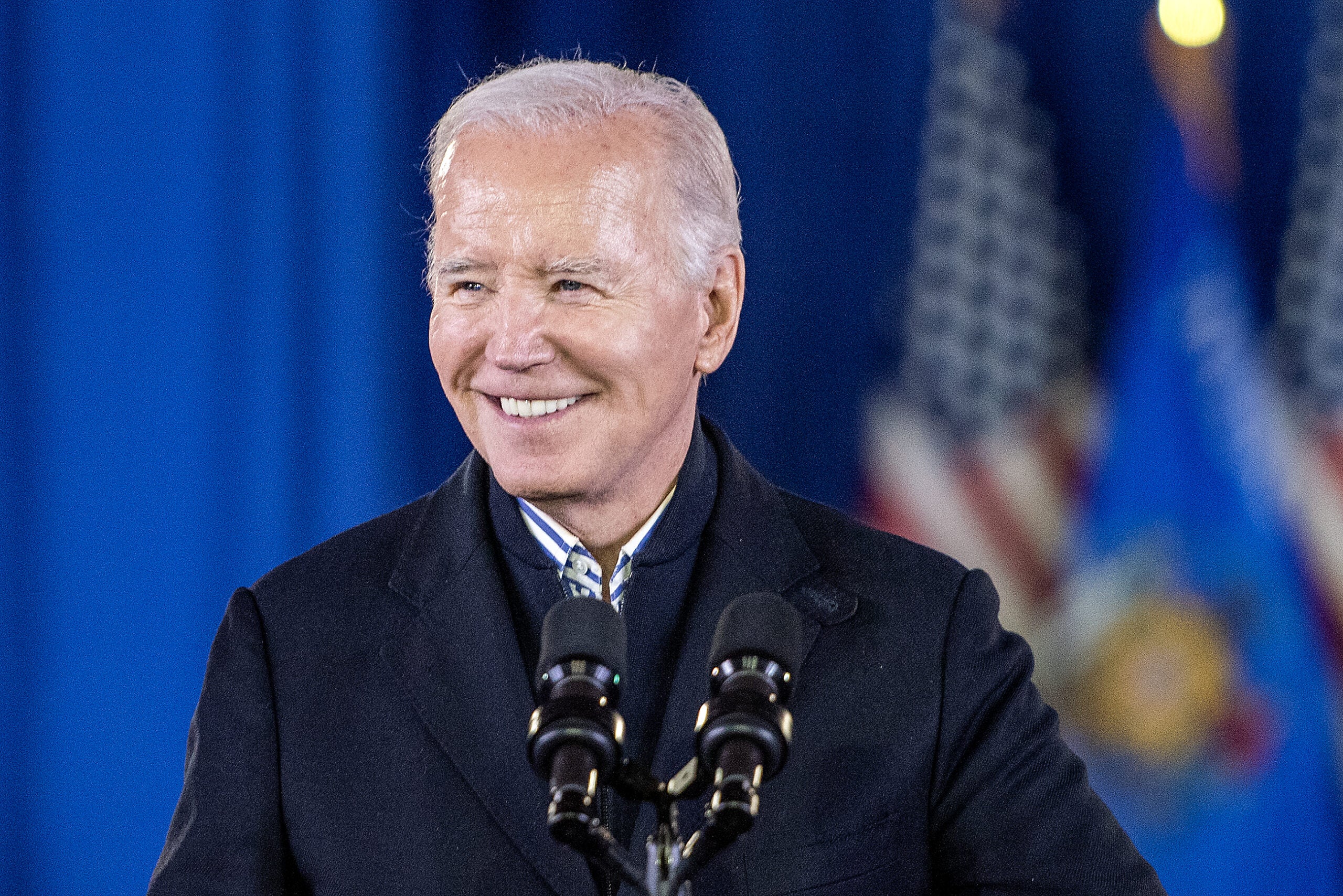Gov. Tony Evers’ budget proposal would help advance two major bridge projects in Wisconsin, including one President Joe Biden has said could benefit from infrastructure law funds.
Evers is proposing to set aside nearly $100 million combined in bonding for the Blatnik Bridge that connects Duluth and Superior and the South Bridge project over the Fox River in Brown County.
In the Twin Ports, Wisconsin and Minnesota will split the cost of the estimated $1.8 billion Blatnik Bridge replacement. Transportation officials hope federal funds will cover the bulk of the project costs.
Stay informed on the latest news
Sign up for WPR’s email newsletter.
“The Blatnik Bridge is not only a big project for your area, it is literally the biggest project that we have coming up in the state,” Wisconsin Transportation Secretary Craig Thompson told northern Wisconsin leaders last week.
The governor’s budget would set aside $47.2 million in bonding to begin work on the reconstruction project. Funding for its replacement requires approval from the Wisconsin Legislature as a major interstate bridge project. In order to move forward, transportation officials say the project would require funding over multiple budgets.
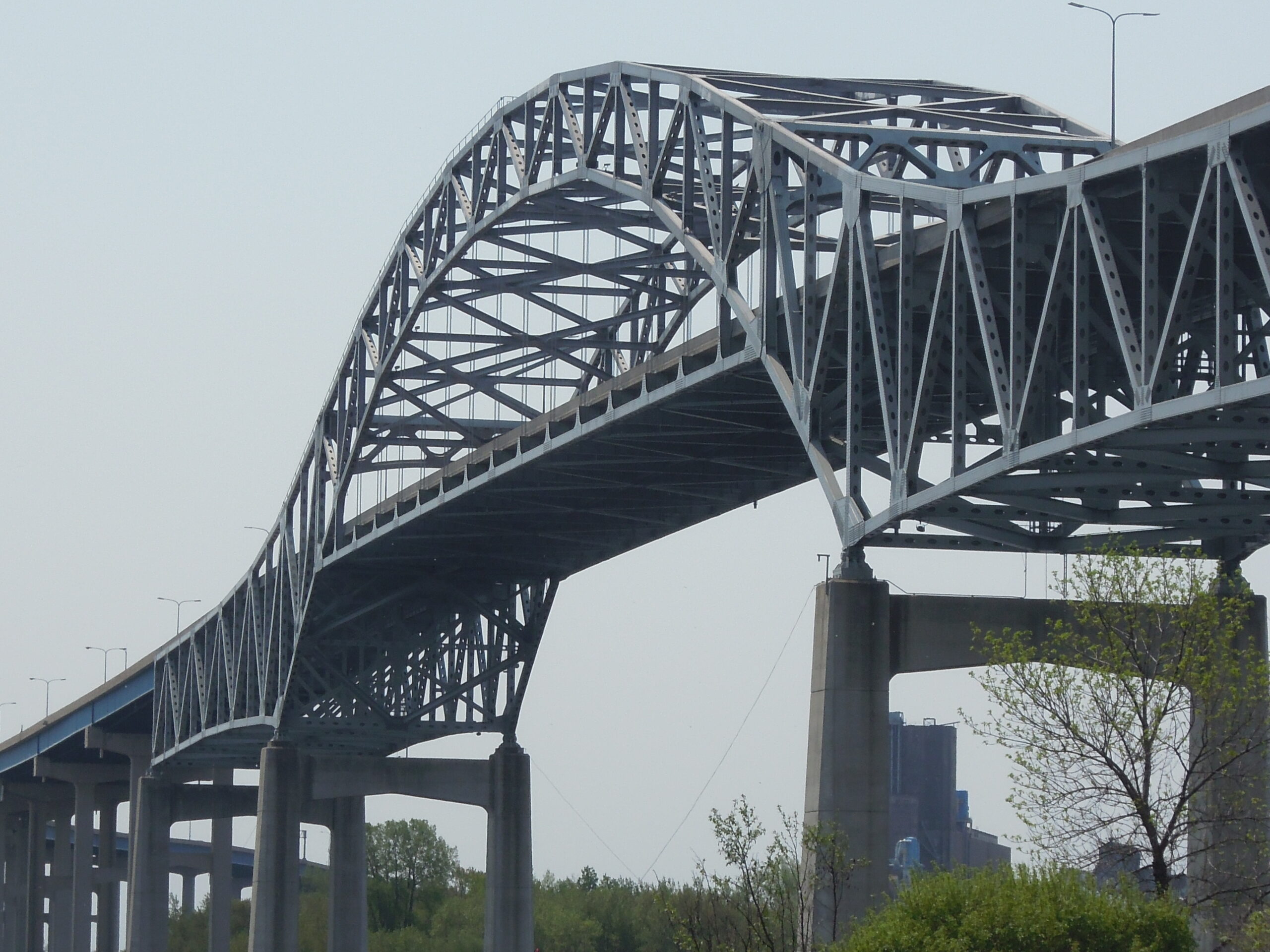
Replacement of the 61-year-old bridge is being driven by its deteriorating condition. The bridge has been under load restrictions due to age, rust and corrosion on its primary trusses. Although transportation officials say the bridge needs to be replaced, they emphasize regular inspections and maintenance ensure it remains safe in the meantime for the more than 33,000 drivers who cross the bridge each day. President Biden toured the bridge last year as part of touting the bipartisan infrastructure law.
“There’s a reason the President of the United States visited that bridge,” Superior Mayor Jim Paine said. “It’s a vital piece of infrastructure, and it is aging.”
Superior and Douglas County leaders urged the state to fully reconstruct the bridge and include a bike and pedestrian path during a meeting with transportation officials in Madison. A survey of 323 people found the vast majority would use it to walk, run and bike between the cities several times a year.
Superior’s mayor said no bridge is better than a bridge that doesn’t serve everyone, adding the lack of a multi-modal path is a barrier to the region’s most vulnerable people who need to get to and from work.
The Wisconsin and Minnesota Departments of Transportation are considering two options — one would reconstruct the bridge along its existing route, the second is slightly westward across the St. Louis River that separates Duluth and Superior. Thompson said transportation officials expect to announce their preferred alternative in March.
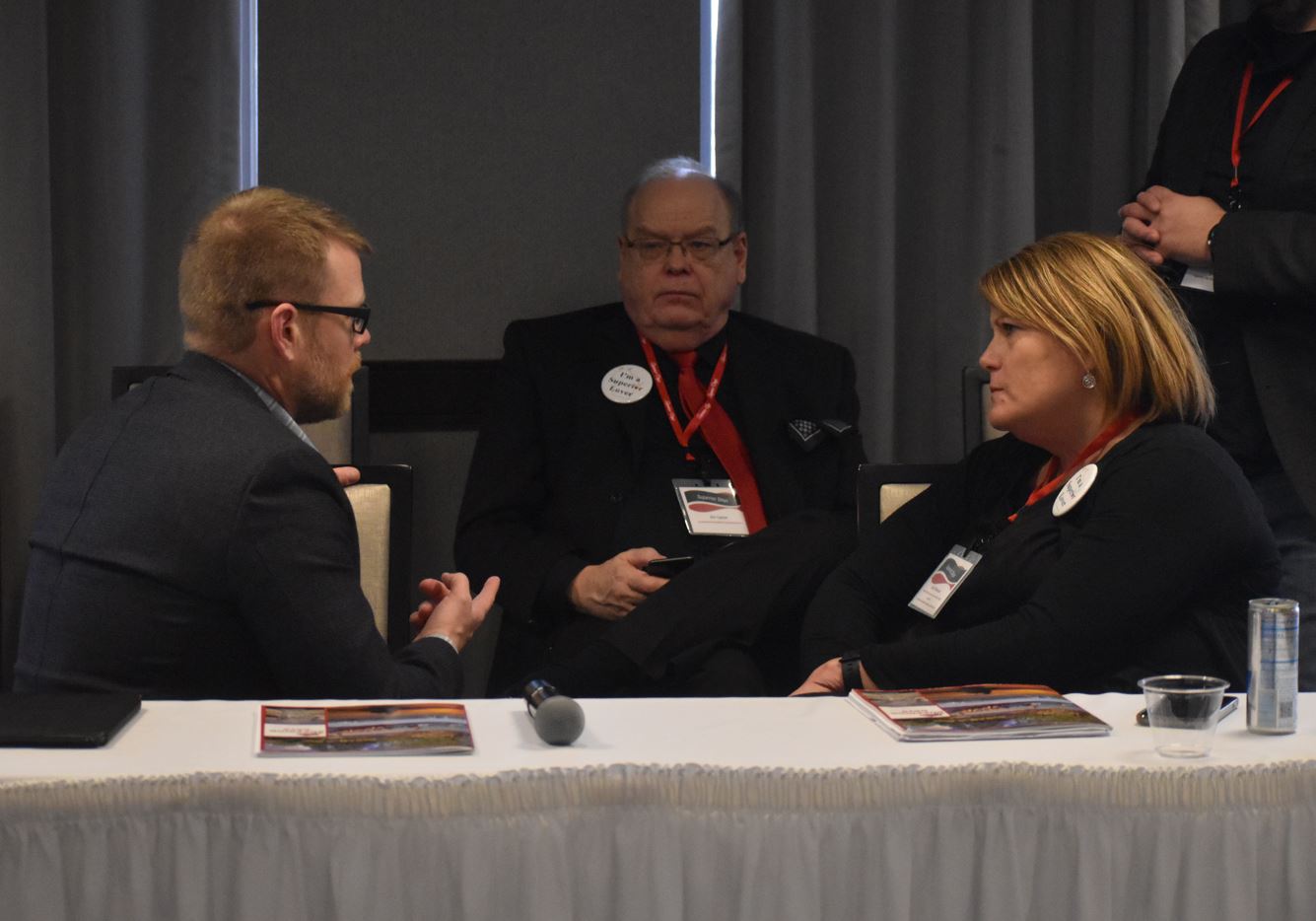
Construction of the new bridge is slated to begin in 2028, but it could begin in 2026 if funding becomes available. Wisconsin and Minnesota are applying for $800 million in grant money under the bipartisan infrastructure law to help fund the project, according to Thompson. The project wasn’t funded in the first round of grants after federal transportation officials awarded nearly $1.4 billion to improve a bridge linking Ohio and Kentucky. Even so, Wisconsin’s Transportation Secretary is optimistic the project will receive federal funding in future grant rounds.
The governor’s budget would also set aside $50 million in bonding for a bridge that would address transportation demand in the Green Bay metropolitan area. The South Bridge Connector project in Brown County is aimed at alleviating congestion near the existing Fox River bridges, reducing travel times, addressing higher-than-average crash rates and accommodating future travel and development needs.
Sen. Rob Cowles, R-Green Bay, is vice chair of the state Senate’s transportation committee. Cowles said he hopes money is available under the next budget to support the state’s transportation needs, including the Southern Bridge project.
“I hope that can happen in the context of the available dollars, but there’s no assurance that it will,” Cowles said. “There’s also local road aids that are critical, and you can talk to any local government officials. They got a lot of roads that need fixing. They need money from the state to get those roads fixed.”

While the state has a record $7.1 billion surplus, the Green Bay lawmaker said it’s critical the state evaluates spending to avoid a structural deficit moving forward.
Cowles is anxious to see more recent estimates from the Legislative Fiscal Bureau about funding available under the state’s transportation fund. A fiscal analysis from September showed the fund had more than $2.1 billion in 2021-22.
Republican lawmakers and Evers have increased funding for roads in the past two budgets, but the governor vetoed a provision in the 2021-23 biennium that would have permanently doubled annual transfers from the state’s general fund to the transportation fund.
Lawmakers approved the transfers to make up for a pandemic-driven decline in gas tax collections and vehicle registration fees, which help finance road projects. Evers said the transfers were reasonable, but added the “increases should be temporary rather than permanent.”
The governor is proposing to transfer around $190 million of sales tax revenues from the general fund to the transportation fund over the next two years while using $380 million from the state’s surplus to pay down transportation revenue bond debt.
Beyond state funding, Wisconsin has been allocated more than $1 billion in new funding over five years for roads under the bipartisan infrastructure law.
Wisconsin Public Radio, © Copyright 2025, Board of Regents of the University of Wisconsin System and Wisconsin Educational Communications Board.

